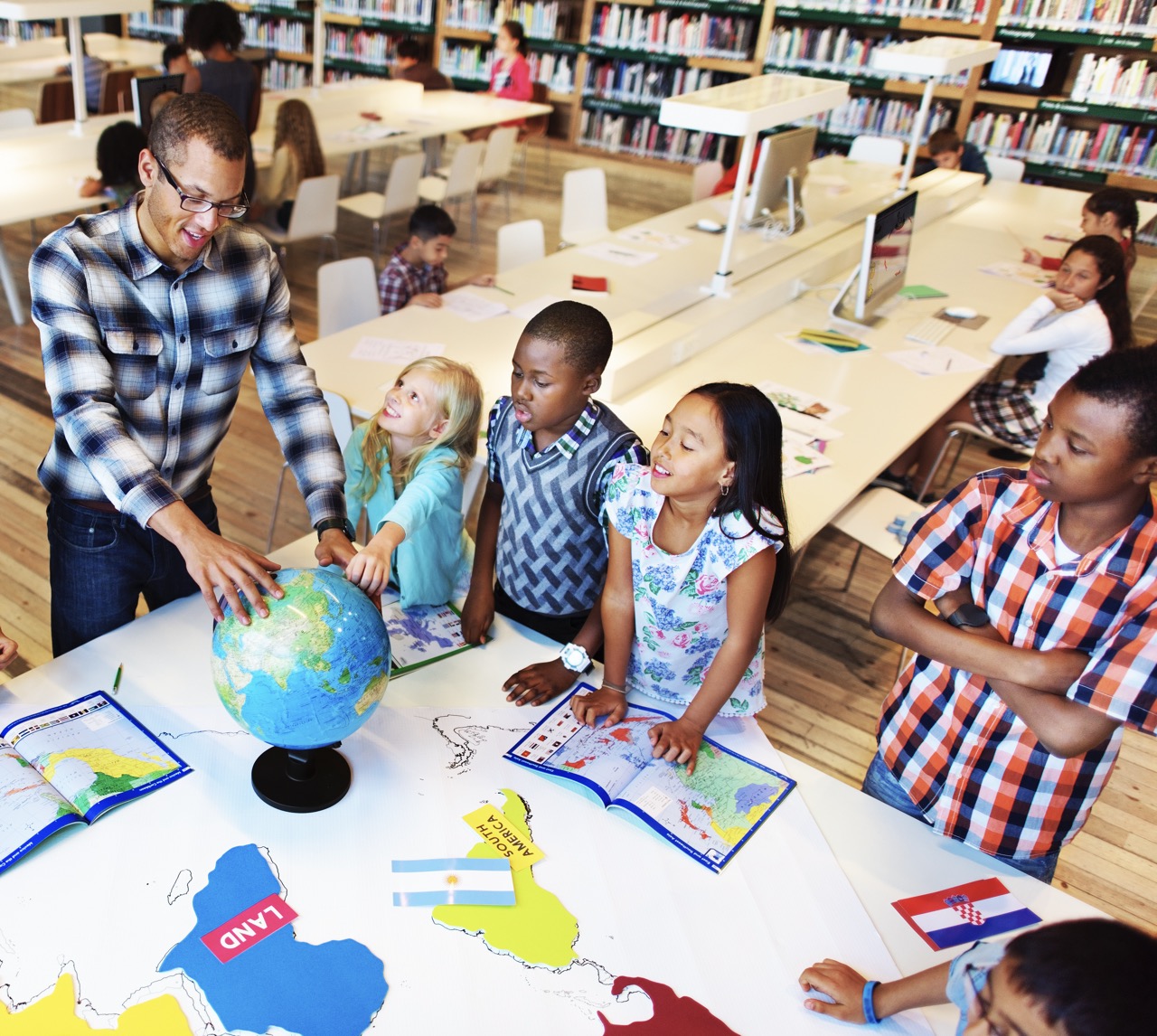In a world increasingly interconnected by technology and travel, the importance of cultural awareness and inclusion cannot be overstated. Literature serves as a powerful tool in this quest, providing insights into diverse experiences and fostering empathy across communities. Books have the unique ability to transport readers into the lives of others, allowing them to see the world through different lenses. This article delves into the role of literature in promoting cultural understanding, highlighting specific titles that are making a difference today, and offering recommendations for readers of all ages.
Exploring Literature’s Role in Fostering Cultural Awareness
Literature has long been a medium through which cultural narratives are shared, and it plays a crucial role in promoting understanding among diverse populations. Through stories, readers are invited to experience the complexities of different lives, traditions, and values. Fiction and non-fiction alike can introduce readers to unfamiliar customs, histories, and perspectives, breaking down stereotypes and encouraging open-mindedness. This engagement can serve as a bridge to understanding, allowing individuals to see the common threads that unite humanity while appreciating the rich tapestry of cultural differences.
Moreover, the impact of literature goes beyond mere exposure to diverse cultures; it can inspire critical thinking about societal issues. As readers encounter characters grappling with challenges related to race, gender, and identity, they are prompted to reflect on their own biases and preconceptions. This introspective process is essential for cultivating a culture of inclusion and respect, as it encourages individuals to confront uncomfortable truths and engage in meaningful conversations about diversity. Ultimately, literature can act as a catalyst for change, empowering readers to become advocates for cultural awareness.
Additionally, shared reading experiences can foster dialogue about cultural issues, allowing communities to come together in discussions that might otherwise be challenging. Book clubs, classroom settings, and community organizations often use literature as a springboard for conversations about identity and inclusion. This collective exploration not only deepens understanding among participants but also reinforces the value of empathy in everyday interactions. By harnessing the power of storytelling, literature becomes a tool for social connection and cultural appreciation.
Top Titles That Promote Understanding and Inclusion Today
Several contemporary authors are producing works that delve into themes of cultural awareness and inclusion, offering readers fresh perspectives and nuanced narratives. One standout title is "The Hate U Give" by Angie Thomas, which addresses the complexities of race and identity through the eyes of a teenage girl navigating the aftermath of a police shooting. This powerful narrative not only highlights the realities of systemic racism but also emphasizes the importance of finding one’s voice in the fight for justice. Such stories resonate widely, inspiring readers of all backgrounds to engage in conversations about race and privilege.
Another notable book is "Caste: The Origins of Our Discontents" by Isabel Wilkerson, which examines the unspoken caste system that underlies American society. By drawing parallels between caste systems in different cultures, Wilkerson invites readers to reflect on the structures of inequality that persist globally. The book serves as a wake-up call, urging individuals to recognize and dismantle systems of oppression that affect marginalized communities. Its compelling narrative and thorough research provide readers with the tools to understand the historical and societal contexts of their own experiences.
Finally, "Born a Crime: Stories from a South African Childhood" by Trevor Noah offers an engaging and humorous account of the author’s upbringing during apartheid. Noah’s storytelling ability brings to life the complexities of racial identity, cultural heritage, and resilience. Through his lens, readers gain insight into both the absurdities and harsh realities of living in a divided society. This memoir not only entertains but also educates, making it an essential read for anyone seeking to grasp the implications of race and culture in a global context.
How Diverse Narratives Shape Our Worldview and Empathy
Diverse narratives in literature play a significant role in shaping our worldview and enhancing our capacity for empathy. When readers encounter characters from different backgrounds, they are given the opportunity to step outside of their own experiences and consider life from a new perspective. This exposure helps to dismantle preconceived notions and biases, fostering a deeper understanding of the complexities that define diverse cultures. By engaging with varied narratives, readers can appreciate the richness of human experiences and realize that, despite differences, many emotions and challenges are universally shared.
Moreover, literature that features diverse voices provides representation for marginalized communities, which is vital for validation and understanding. When individuals see their own stories reflected in literature, it empowers them and affirms their experiences. Conversely, readers from dominant cultures are exposed to the realities faced by others, helping them to recognize their own privilege and encouraging them to advocate for equity. This reciprocal relationship between diverse narratives and readers cultivates a culture of empathy, where individuals are more inclined to support one another in addressing social injustices.
Furthermore, the act of reading diverse narratives can lead to active engagement with the world outside of literature. As readers become aware of the challenges faced by others, they may feel inspired to take action, whether through advocacy, volunteer work, or simply participating in discussions that promote cultural understanding. By fostering empathy through the exploration of diverse stories, literature not only enriches individual lives but also has the potential to create more inclusive communities.
Engaging Young Readers: Books for Kids on Inclusion
Introducing young readers to books that promote cultural awareness and inclusion is essential for nurturing empathy from an early age. Titles such as "All Are Welcome" by Alexandra Penfold convey the message that diversity is something to be celebrated. In this beautifully illustrated book, children from various backgrounds come together in a school where everyone feels included and valued. Such narratives instill the importance of acceptance and respect for others, setting the groundwork for future generations to embrace diversity.
Another important title is "Last Stop on Market Street" by Matt de la Peña, which follows a young boy and his grandmother as they navigate their urban neighborhood. Through their journey, themes of socioeconomic diversity and community are explored, encouraging children to appreciate the beauty in differences. This story not only engages young readers through its relatable characters but also teaches valuable lessons about gratitude and the richness of diverse experiences.
Furthermore, "The Name Jar" by Yangsook Choi addresses the importance of names and cultural identity. The book tells the story of a young girl who feels pressured to adopt an American name after moving to a new country. Through her journey, readers learn about the significance of names in reflecting one’s heritage and identity. Such stories empower children to embrace their uniqueness and foster an appreciation for the rich tapestry of cultures that populate their communities.
Adult Reads That Challenge Perspectives on Culture and Identity
For adult readers seeking to challenge their perspectives on culture and identity, several impactful titles are available. "Americanah" by Chimamanda Ngozi Adichie provides a nuanced exploration of race, identity, and love across the backdrop of Nigeria and the United States. Through the experiences of the protagonist, Adichie delves into the complexities of what it means to be an immigrant and the racial dynamics that shape American society. The novel encourages readers to reflect on their own identities and the societal constructs that influence their perceptions of race.
Another thought-provoking book is "The Invisible Man" by Ralph Ellison, which delves into themes of race and individuality in America. The narrative follows an unnamed Black protagonist who grapples with his identity in a society that often overlooks him. Through his journey, Ellison challenges readers to confront their understanding of race and the ways in which cultural narratives are often marginalized. The book remains relevant today, inviting reflection on the ongoing struggles for recognition and understanding within society.
Additionally, "Why I’m No Longer Talking to White People About Race" by Reni Eddo-Lodge addresses the complexities of race relations in contemporary society. The author provides a candid examination of systemic racism and the challenges of engaging in conversations about race. Eddo-Lodge’s work underscores the importance of acknowledging historical context while fostering dialogue that promotes understanding. This book serves as a crucial resource for readers seeking to engage more thoughtfully with issues of race, privilege, and identity.
Taking Action: Using Books to Advocate for Cultural Respect
Books can be powerful tools for advocacy, enabling individuals to promote cultural respect and understanding within their communities. One effective way to take action is by organizing book clubs or reading groups focused on literature that highlights cultural issues. These groups create a space for discussion, allowing participants to share their insights and experiences while grappling with complex themes around identity and inclusion. By fostering open dialogue, readers can deepen their understanding of cultural differences and collectively explore ways to address societal challenges.
Moreover, individuals can leverage social media platforms to amplify the voices of diverse authors and promote their works. Sharing book recommendations, reviews, and personal reflections on literature that addresses cultural awareness encourages a broader audience to engage with these important topics. By promoting diverse literature, readers help to cultivate a culture that values representation and respect. This digital advocacy can inspire others to seek out new perspectives and challenge their own biases.
Finally, joining or supporting organizations that focus on literacy and cultural education is another impactful way to advocate for cultural respect. Many nonprofits and community groups work to promote access to diverse literature for underserved populations, helping to bridge the gap in representation. Supporting these organizations, whether through donations or volunteer work, contributes to a larger movement that champions inclusivity and understanding. By taking actionable steps, readers can harness the power of literature to foster cultural respect and create positive change in their communities.
In conclusion, literature serves as an invaluable resource in fostering cultural awareness and promoting inclusion. Through diverse narratives, readers of all ages can develop empathy, challenge their perspectives, and engage in meaningful conversations about identity and culture. The books highlighted in this article are just a few examples of how literature can inspire understanding and respect for the richness of human experiences. By embracing these narratives and advocating for cultural awareness, we can contribute to a more inclusive society—one where every voice is heard and valued.










